I’m writing this for everyone who’s ever had a serious injury and had to learn to live with it for a long period of time. I’m writing this for everyone who’s had to suffer quietly because the medical system is slow and not always the best. I’m writing this because I have to endure a slow, and not always a competent medical system. And I’d like to explain what I’ve learned from this experience.
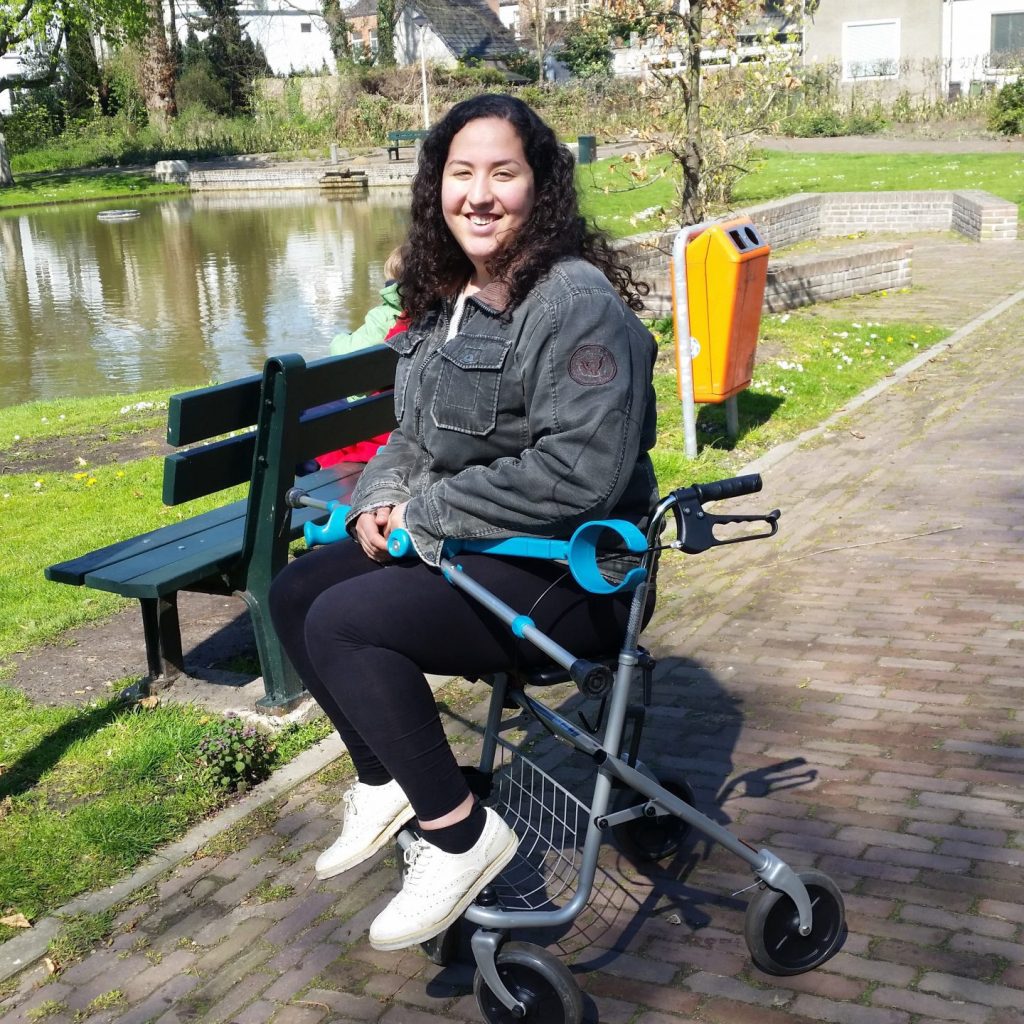
How I Injured Myself
April 3, 2019, was a day that threw my life a curveball. I was biking home when it was lightly raining. I tried to turn from the bike lane into the road so I could make a left turn towards my home. My bike got caught in the stone in the bike lane and the road (the bike lane is made of cobblestone, the road is asphalt).
I fell to the ground, and that was the last time I could walk or bike in months. I tried waving for help to cars passing by. No one bothered to help. Eventually, I was able to flag down a worker who was doing construction on my street.
I was unable to put my foot down, let alone walk. The worker pushed me on my bike home. I didn’t go to the hospital until a few days later. They took an x-ray and said everything was fine.
They were wrong. Months went by, and I still couldn’t walk without excruciating pain. I had never injured myself that way before. I’ve had small scrapes and bruises but never an injury that debilitated me.
It was frustrating for me. Even though most people in my life were supportive, some said things like “grow up, it doesn’t hurt that bad.” I had to walk with crutches or sit in a wheelchair. I wasn’t exaggerating my pain. It felt like I had become disabled forever.
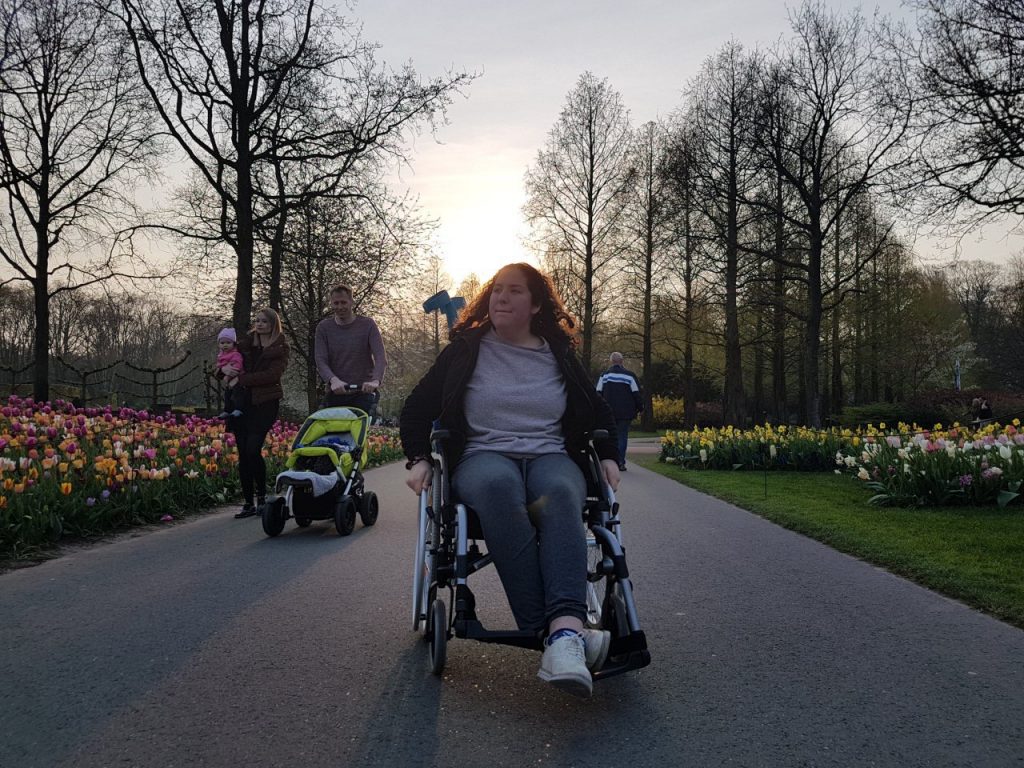
The Dutch pride themselves on having one of the best healthcare systems in the world. In my situation, that couldn’t be further from the truth. It would be months before I got a diagnosis and a plan for recovery.
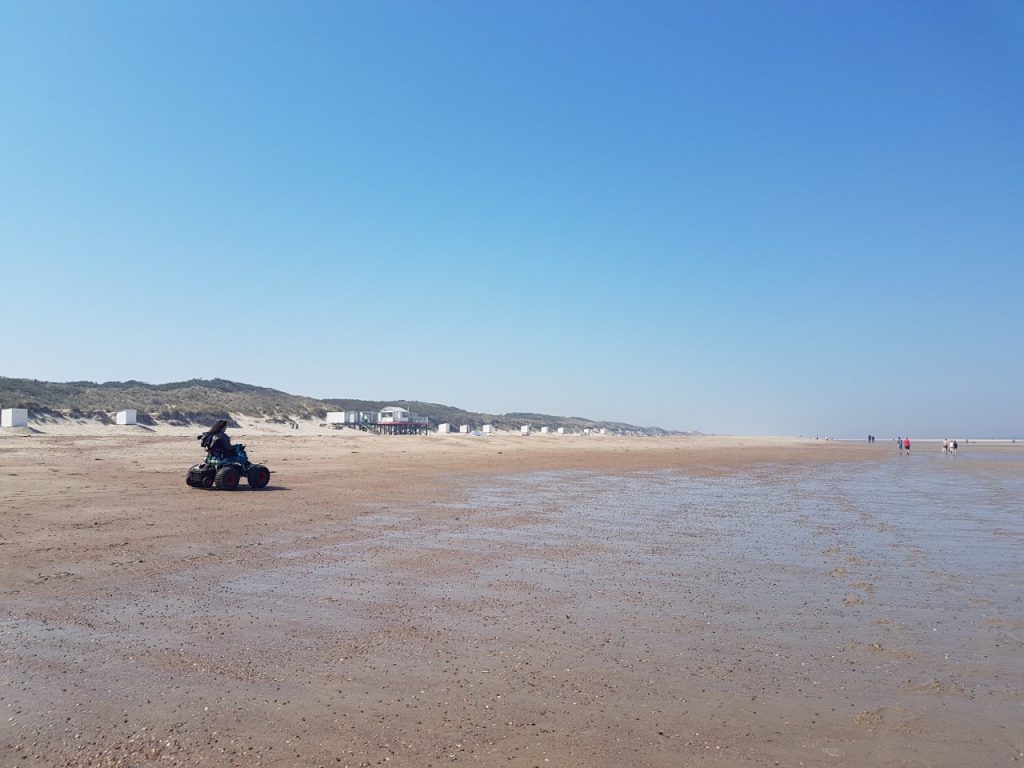
Physical Therapy
Eventually, I made it to physical therapy. Everyone there told me that I should be healed within six weeks. They were wrong. They mentioned in my first or second session that if my foot didn’t get better, they would do an ultrasound of my foot.
A month went by. After shelling out over $200 for an insole that didn’t solve my walking issue and a monthly fee added to my insurance for physical therapy, I’d had enough.
A Second Opinion
I happened to be in New York for work, so I decided to get an American doctor’s opinion. I went to urgent care. The staff there took an x-ray and told me it wasn’t broken. The doctor told me that he wasn’t an expert and that I definitely should see an orthopedist. He explained that it didn’t make sense that after so many months, I still had pain from a seemingly simple injury.
I went home to the Netherlands and told my physical therapist what the doctor in NY said. I told her that I wanted the ultrasound she originally talked about. She said we weren’t there yet.
Still In Pain
About another month went by, I was really done. I couldn’t walk a few city blocks before having to sit down because of the pain. I told her that I wanted an ultrasound and that physical therapy wasn’t helping. She complied and scheduled the ultrasound. Sure enough, the ultrasound tech found something wrong with my foot.
He sent me to my primary care physician to get evaluated. My primary care doctor sent me to an orthopedist. When I went to the orthopedist, I had to get another x-ray and CT scan. The orthopedist took one look at the scans and was baffled that someone could miss my injury. I had broken my foot, and the bones in my foot had been dislocated. He said that he was in shock that I could walk.
Finally Some Good News
After a week of his consulting other orthopedists on what to do, he explained that there was nothing he could do because of how complicated the injury was. He sent me to an orthopedic hospital in Nijmegen called Sint Maartenskliniek. There, a doctor was able to come up with a surgery to fix my injury. It is called triple fusion foot surgery. The predicted recovery time is anywhere from 9 to 12 months. That’s at least three months of sitting at home.
Then Coronavirus got to the Netherlands. My surgery has been postponed until the medical system can bounce back from the pressure of the Coronavirus. The specialist that is operating on me also has a very long waiting list.
I wake up every morning, I put my foot down to get up, and I’m reminded of my injury. I haven’t had a single day when I didn’t forget what I went through and am still going through. My foot hurts every single day, but I know that there is hope. I taught myself to walk with chunky boots and now regular sneakers. I just have to push through the pain for now.
Updates:
My surgery has finally been scheduled for December 21, 2020. I’m absolutely terrified but I know this is what I need. The recovery will be long, anywhere from 9 to 12 months. The most important thing is that I will finally be getting better and moving forward.
December 18, 2020: Unfortunately, since I have some COVID symptoms, the hospital refuses to do the surgery Monday. Even though I got a negative COVID test and am willing to do another test. I just have a cold and am feeling much better. They scheduled it for January 21. With the current COVID situation here, who knows if that date will stick.
January 21, 2021: I am continuously utterly shocked by the way patients are treated in this country. My boyfriend and I drove an hour and a half today to the hospital. I barely slept and was nauseous because I was so nervous. The hospital told us yesterday that my boyfriend could be in the pre-op room. We get there and the receptionist says no, that isn’t accurate, he can’t come in because everyone speaks English. By the way, my nurse barely spoke English actually. Then they take my temp, and it comes out to 38.1C (100.58F).
They respond that I won’t be having surgery today. They refuse to even entertain the idea of taking Tylenol (paracetamol) to lower the fever. They also refused to reschedule the surgery for anytime soon. I had to take a COVID test and wait for at least two weeks before they call me with a new surgery date. COVID test already came back negative. The doctor refused to even discuss anything with me. She told me straight up that we aren’t discussing this anymore. Newsflash: being nervous can raise your temperature. It doesn’t mean you’re sick.
January 24, 2021: I got a call stating that because my COVID test was negative, my surgery is rescheduled for March 5.
March 6, 2021: After almost two years after fracturing my foot and my bones moving up. Being wrongly diagnosed, useless physical therapy, constant pain, then being correctly diagnosed, taking forever to get a surgery date, and surgery being canceled twice. I finally had my surgery this past Friday. I stayed a night in the hospital and am now headed home. I don’t have a lot of pain thankfully, as my foot is mostly numb and will stay that way for a few days. The recovery will be quite long, but now there’s a light at the end of the tunnel. I’m so happy to finally be moving forward and not being in limbo anymore. I’m so ready to close this chapter of my life. I am posting about my recovery on my Instagram. Feel free to follow along.
What I’ve Learned
1. Advocate for Yourself
My biggest regret is trusting the doctors. Almost everyone in my family and my friends told me that it’s not normal and that I should see a doctor again. I trusted the doctors when they said my foot would heal, and that I just needed time.
If you feel something is wrong, go back to the doctor. Don’t let them say everything is going to be okay, because it’s not always going to be okay. Don’t be afraid to get a second or even third opinion.
2. Learn How Your Country’s Medical System Works
All I had to do was go to my primary care physician, and he would have sent me to an orthopedist. I didn’t know that. I thought that the physical therapist would send me to an orthopedist if the PT wasn’t working. Apparently in the Netherlands, only your primary care doctor can send you to a specialist. He is the manager of all your health-related issues. Speak to your medical professionals to find out what the procedure is.
3. Don’t Give Up
I wake up with pain every day, but now I know things will get better. Remember that there is light at the end of the tunnel. Although I’m still walking with a serious injury, it hurts less because I’ve grown accustomed to it, not that I should have to. It’s unfair but it’s not within my control.
I’ve learned to walk with my injury. I have accepted that there is absolutely nothing I can do about it right now. I’ll have to do this until the orthopedist is able to perform my surgery.
Be sure to follow me on my Instagram and my Facebook where I post all about Dutch living and more.

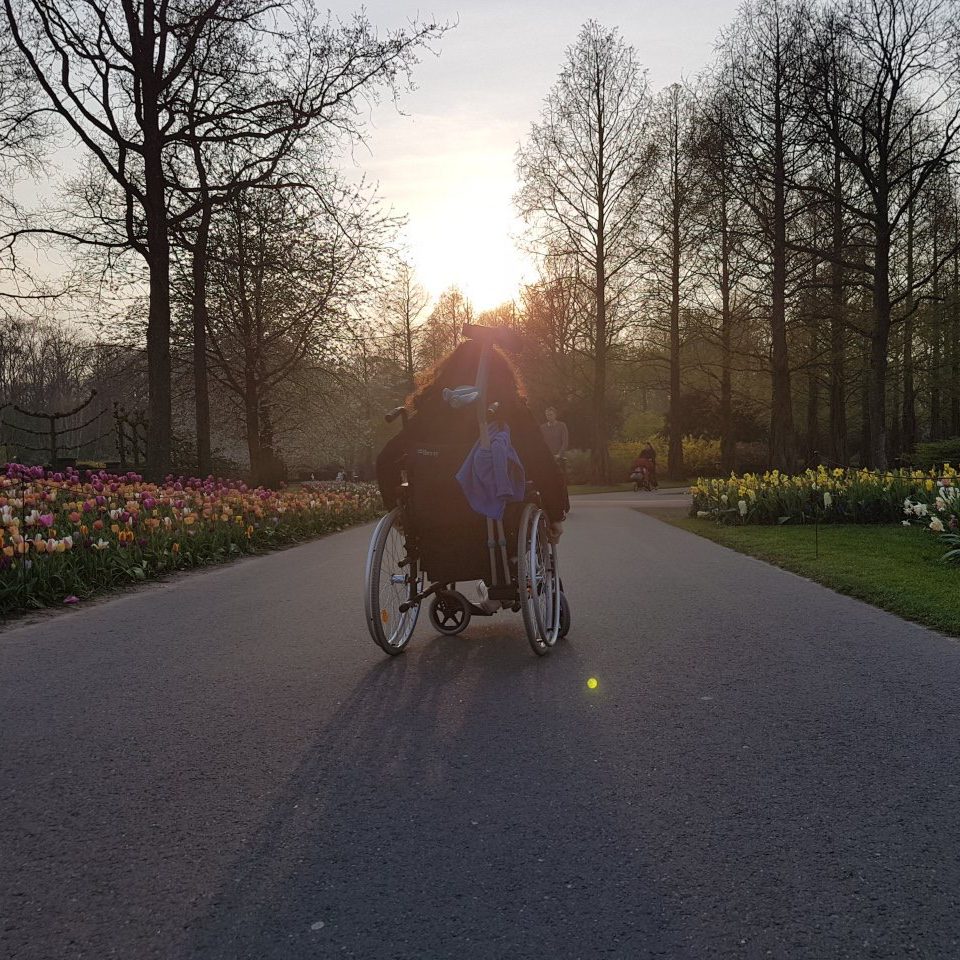


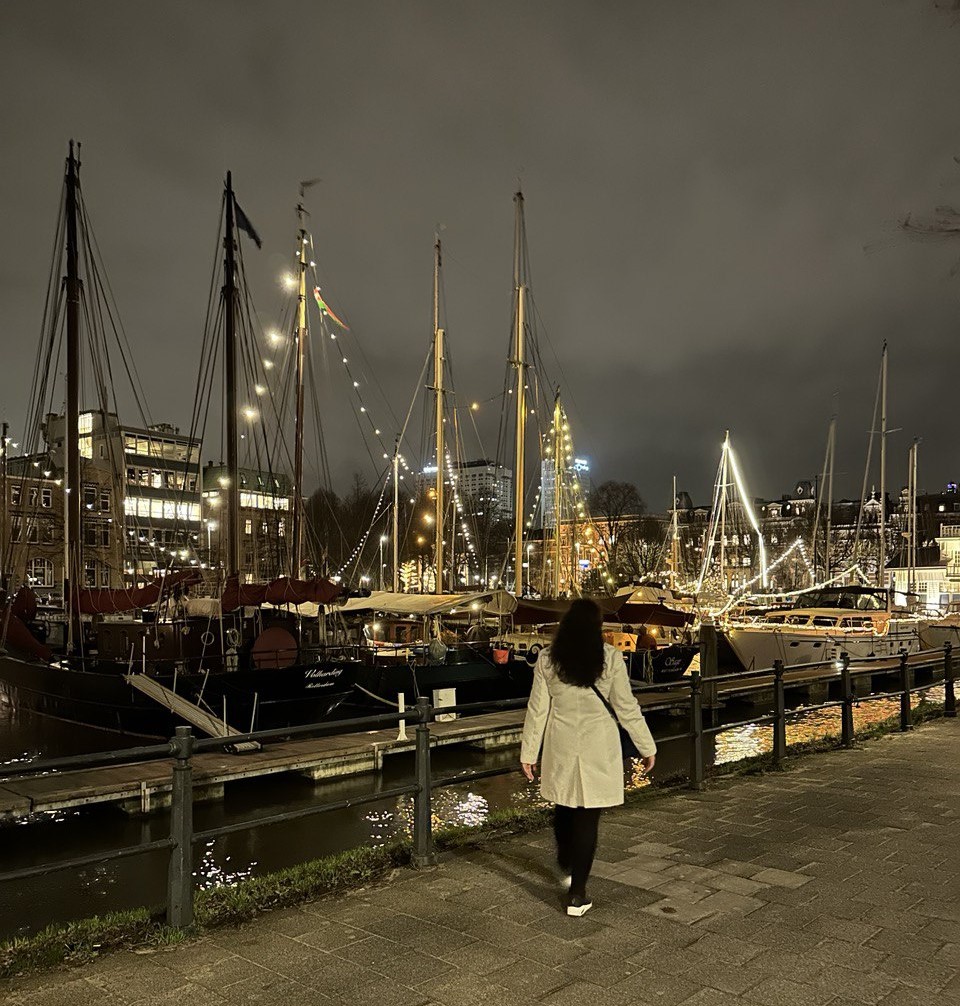
Sorry this happened to you.
The dutch system is indeed different from others, you need to know how it works.
This is the most important learning i think. Most expats i have heard are having issues due to not knowing the system and therefore making the “wrong” steps. Not their fault, or yours, i just wish it would be easier for everyone one.
Thank you for sharing that. I hope people read my story and learn what to do so they don’t have to go through what I went through.
thanks for sharing. you are a warrior! fighting pain everyday and moving forward. your experience sucks!! fortunately you are an intelligent and well spoken woman that got you this far. You will overcome!! and recover!
First of all, I am sorry that you are in pain. This should not still be happening. That being said, I’m not sure why you are criticizing the Dutch medical system when you admit that the real issue was your lack of familiarity with how the system works. I have had 2 extremely complicated medical issues here and had none of the problems you did. Plus….I paid a total of €385 for my care. Not understanding the process is not neligence or inadequate care.
Thank you for reading my article. It’s completely based on my experience. That definitely doesn’t mean that the whole healthcare system is bad. I hope you are well.
Hi Soreh,
My first thought was …… Oh damn, that sucks on multiple levels.
A few months have passed since you wrote it, and I’m wondering if it was fixed.
Unfortunately not, I’m still waiting on surgery. With COVID raging and the specialist being in high demand, it’s not a recipe for swiftness.
Just read through this as you linked it on the comment I made.
Ouch. Advocating for yourself among the Dutch medical system is nearly like trying to do battle in the boxing ring.
I have had to nigh on threaten my primary care physician with reporting them to the medical council for negligence to get one of my girls seen to. Even the emergency doctor told me to report them.
A lot of the time, you as the patient have to do the research and what you need. Even though it is the GP’s job to figure out what can be done and send you to specialists or order correct blood tests; perhaps I just have crappy GP practice. There are only two practices – and they are as bad as each other , they are the only in the village.
I could nearly write a journal about my expat adventures
” I didn’t go to the hospital until a few days later. They took an x-ray and said everything was fine.” Obviously that was not true. Have you contacted the hospital about their misdiagnosis?
Yes, I did. Thank you for pointing that out.
Ouch! So sorry for what you going trough. Thanks for sharing!
A few years ago, the Netherlands was 5th in providing good general health care, behind England which was first. Having said that, my husband was in pain for a year with a miss diagnosed hernia and didn’t found out until he was about to be operated for something else. Human error is possible. What I found in the Netherlands is that lack of information can be quite harmful. Not many people tell you what you must do next, that in itself feels like discrimination.
Thank you for reading! That is true. Human error. It’s just hard when it happens.
Well we need to define what is a “Good health care system”. In comparison with other places in the world the health care system of the Netherlands is good in optimizing resources, meaning lots of people can have access to it and still few money is spent. This approach is successful in monetary and economical terms; however, the humanitarian and close personal contact approach looses a lot with this scheme. While the Dutch health care system works very good for simple and mild cases (most of them) it definitely fails when complicated cases arise. Having feedback from many of my friends that do research at the Erasmus Medical Center of rotterdam, we all agreed that the most complicated cases (the ones that require specialist) always take much more time to be treated in the Netherlands than in other countries, so once again I would ask… Is this a good health case system?
Hello… this is so true and similar to what I’ve experienced in my case as well.. wish you strength in these tough times.
Apparently the New York doctor had the same conclusion since he couldn’t see it on the x-ray as well. He just said it’s strange because it already took so long. So probably his initial diagnose would also be nothing if you went just a few days after the accident and doesn’t seem to be a difference between the Dutch and NY doctor.
I guess the real problem is that the system works different(Not necessary worse/ bad because I think it’s good that there is one manager overseeing it all so that the others don’t send you from one point to the other and back. He normally would have forwarded you for extra research if the complaints don’t solve quickly even if the x-ray didn’t show anything.) and that nobody pointed that out.
Besides that your unlucky with the covid situation, that’s not how it would go normally.
Wish you good luck recovering. Hope surgery doesn’t get cancelled again.
I am from Spain (public health system and probably better than the Dutch one). First thing I did when I arrived: ask everyone what’s the best way to see a specialist. My boyfriend (Dutchie) got an injury a year ago and he is going to physio now after a year of not being able to keep up with his hobbies and not being able to walk for more than 20 minutes. I studied physiotherapy in Spain but I don’t treat patients, never done it. I used to work as a physio interpreter for Chronic pain courses, but I know how important is to find the cause and treat it. Please, after your surgery, find a physio that treats chronic pain. Yours might not be chronic, but therapy will help a lot with pain and the mental consequences of all this process. Don’t trust the Dutch system ever again and kick them in their “billen” whenever they don’t listen. Best of luck.
Thank you so much for your support and advice!
Good luck, Soreh! I can understand yr frustration with Dutch medical system, I can eco all the same; I have and still having bad experience (((( My GP barely speaks English and to reach a specialist is so so hard, but when you make it – you can’t relax still – cause they say it will pass away , nothing serious, take ibuprofen (in my case). I used to trust as I am not a doctor BUT I am in pain(((
The world is full of Demi-god doctors. Many of them choose the medical profession because of the associated social status and/or remuneration! The problem is that medical professionals are trained to do symptom management. There are a some that are problem solvers and that think outside the box. However, most don’t. If only they were trained in solving the root cause of the symptoms…! I live in the US, and many of my experiences are just as bad as yours.